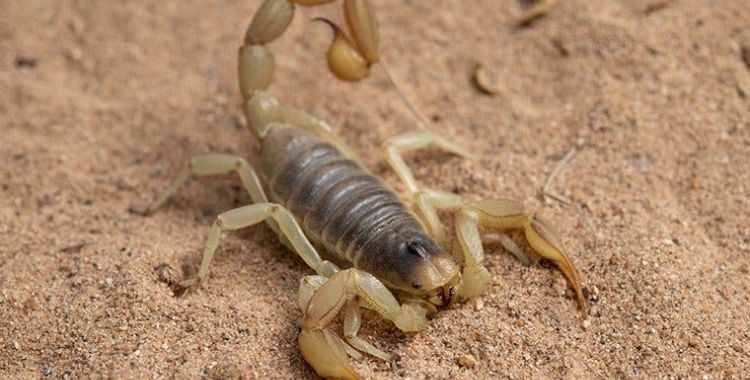
Arizona’s Giant Hairy Scorpion: Should Tucson Residents Be Concerned?
Arizona’s Giant Hairy Scorpion: Should Tucson Residents Be Concerned?
The bigger an insect or creature is, the more intimidating they are. Sometimes scorpions are fairly small, but a multitude is substantial in size. Other elements of their menacing appearance are their pincer claws and stingers full of venom. Either could strike you. Many citizens of the United States will never be affected by scorpions because they aren’t native to their area. The pests definitely live in Tucson, though. Home and business owners need to prepare accordingly for prevention. Dry weather is especially welcoming to these pests.
It would behoove you to learn all you can about local arachnids, like the dominant giant hairy scorpion. By knowing what motivates their invasions and what their risks are, you can arm yourself. You’ll have an idea of how to combat and protect yourself from them. Pest Friends can be of great assistance in this endeavor.

How Do Giant Hairy Scorpions Behave? What Are the Dangers?
Giant hairy scorpions are larger than most, being 4 to 7 inches long. The center of their bodies is usually a dark shade, such as brown, black, or olive. However, their appendages will be lighter or yellowish. They are covered in sensitive hairs that help them pick up on prey. At the top of their frames are chunky pincer claws. An arched tail with a stinger is at the bottom. Eight legs get them across the land. If you see one in daylight, you have an infestation. These pests are nocturnal. Spots with an abundance of darkness and shade are preferable to them. When they’re hungry, they’ll hunt for rodents, insects, reptiles, and other critters. Water is more substantial to their survival, as they can go months without feeding.
Often nesting around organic debris, rocks, and wood, scorpions are outdoor pests. They will favor your domicile or establishment if their food or water supply is low. Harsh weather also sends them running to interiors. They’ll enter through holes in utilities, windows, doors, and foundations. Scorpions are likely to settle in:
- Shoes
- Bathrooms
- Garages
- Basements
- Under cabinets
Thankfully, scorpion bites don’t typically cause fatalities. Pain is inevitable, along with localized itching, swelling, and numbness. Further issues are generally the result of other health complications and age. For example, individuals with pre-existing conditions or allergies may experience vomiting and breathing difficulties. Children and the elderly are liable to endure the same. While giant hairy scorpions have less potent venom than their counterparts, it’s wise to seek medical attention.
What Can Be Done to Prevent Giant Hairy Scorpions?
To make your land less attractive to scorpions of every species, you have to prioritize detailed interior care. You must show just as much attention to the lawn. Do the following:
Look over storage items, outdoor furniture, and wood before pulling it indoors.
- Have moisture defects and leaks fixed right away.
- Use a dehumidifier or turn on the air conditioner to regulate interior warmth.
- Cut the grass and trim the greenery on a routine basis.
- Get rid of yard debris. Distance rocks, wood, and plants from the property by two feet.
- Reduce standing water. Drain swimming areas and dry pet drinking bowls.
- Close up gaps in utility lines, foundations, doors, screens, and window frames.
- Contact Pest Friends if you have critters scorpions will feast on.
How Will Pest Friends Handle Giant Hairy Scorpions?
Retail pesticides and other products rectify no infestation. Shelf goods aren’t designed for that; just a few scorpions will die. Another downside is that these items can be very toxic. We at Pest Friends have eco-friendly solutions that will eradicate arachnid populations. Our skilled technicians will apply targeted treatments for both the interior and exterior. Call for a free inspection today!